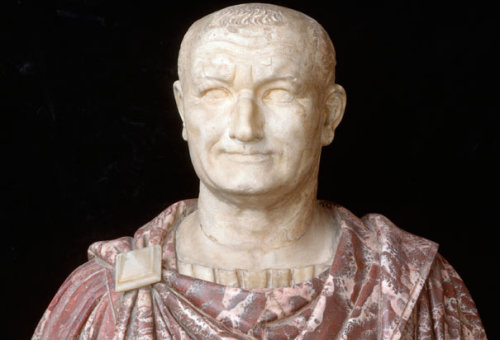Emperor Vespasian and the Urine Tax,When Vespasian became Roman Emperor in 69 AD the Roman Empire wa
Emperor Vespasian and the Urine Tax,When Vespasian became Roman Emperor in 69 AD the Roman Empire was in a very bad way. The empire had just emerged from a bloody civil war that almost brought total collapse to the Roman world. Worse yet, the empire was flat broke, with not a single silver denarius in its treasury.The new emperor, Vespasian, had the task of repairing and restoring the empire, a task that would certainly take a lot of money. He began levying a series of taxes to raise funds. One tax was charged for the collection of urine, that’s right pee! In Rome’s many public restrooms people made a living collecting pee. While today we excrete our bodily fluids and flush it down without a second thought, in ancient times urine was a valuable commodity. It contains a wide array of important minerals and chemicals such as phosphorus and potassium. In the ancient world, the most important chemical extracted from urine was ammonia. Ammonia was especially important for the textiles industry, one of the most booming trades of the Roman Empire. It was often used to bleach wool or linen, and tan leather. While Vespasian’s tax was very unpopular, especially among the urine collectors, textiles makers, and tanners the revenue collected from the tax helped stabilize the empire. One critic of Vespasian’s tax was his own son and future emperor, Titus. When Titus complained of the disgusting nature of the tax, Vespasian held up a coin and asked whether it smelled. Titus replied that it didn’t, and Vespasian uttered the famous phrase Pecunia non olet (money doesn’t stink). -- source link
#history#rome#roman empire#urine#pee#taxes#tax#ancient history#roman emperors#vespasian#money


